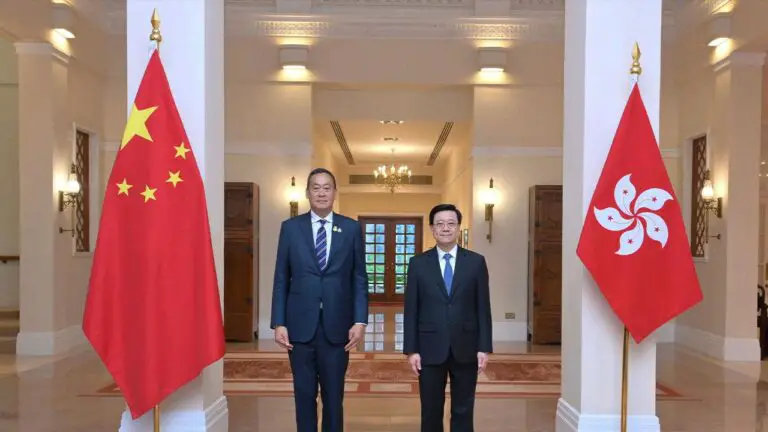Hong Kong Seeks Stronger Economic Ties with Thailand
In a bid to bolster economic and trade relationships, Hong Kong’s Chief Executive, John Lee, revealed on Tuesday that the city intends to strengthen its connections with Thailand. This strategic move comes after a recent meeting with Thailand’s Prime Minister, Srettha Thavisin, underscoring Hong Kong’s pursuit of new business opportunities within Southeast Asia.
During a weekly press briefing, Lee stated that both sides acknowledged their “good and close relations” and pledged to encourage more interactions between their respective populations. Hong Kong’s leadership aims to enhance its role within Southeast Asia, fostering economic growth in the financial hub after enduring years of pandemic-related restrictions. Their vision is to position Hong Kong as a bridge between mainland China and the international community.
To fortify this vision, Lee affirmed that Hong Kong will focus on deepening regional collaboration and expanding efforts related to economic, trade, and investment activities with nations in the Association of Southeast Asian Nations (ASEAN). The government noted that since 2010, ASEAN has ranked as Hong Kong’s second-largest trading partner.
Prime Minister Srettha arrived in Hong Kong for a three-day visit on Sunday. During his stay, he engaged with officials and business leaders, including Bernard Chan and Allan Zeman, sharing his experiences on the X platform (formerly known as Twitter).
Moreover, in a press statement issued on Monday, Chief Executive Lee expressed gratitude to Thailand for its support in Hong Kong’s endeavor to join the Regional Comprehensive Economic Partnership (RCEP). This significant 15-nation trade agreement, which became effective last year, substantially reduces tariffs on thousands of products, streamlines trade procedures, and offers mutual benefits to member nations.
Members of this trade bloc anticipate that this initiative, encompassing roughly a third of global trade and business activity, will play a pivotal role in driving their post-pandemic recoveries.

